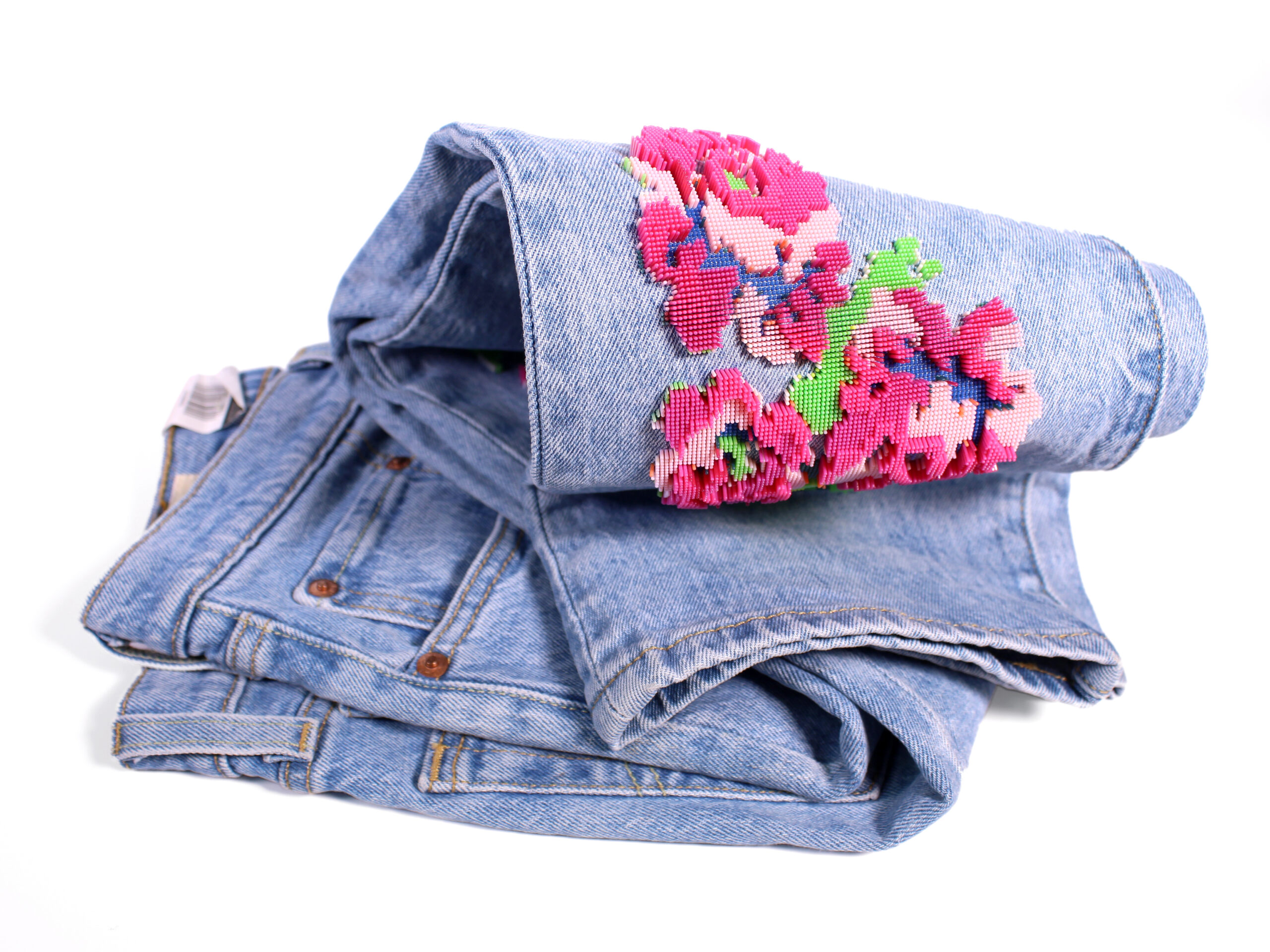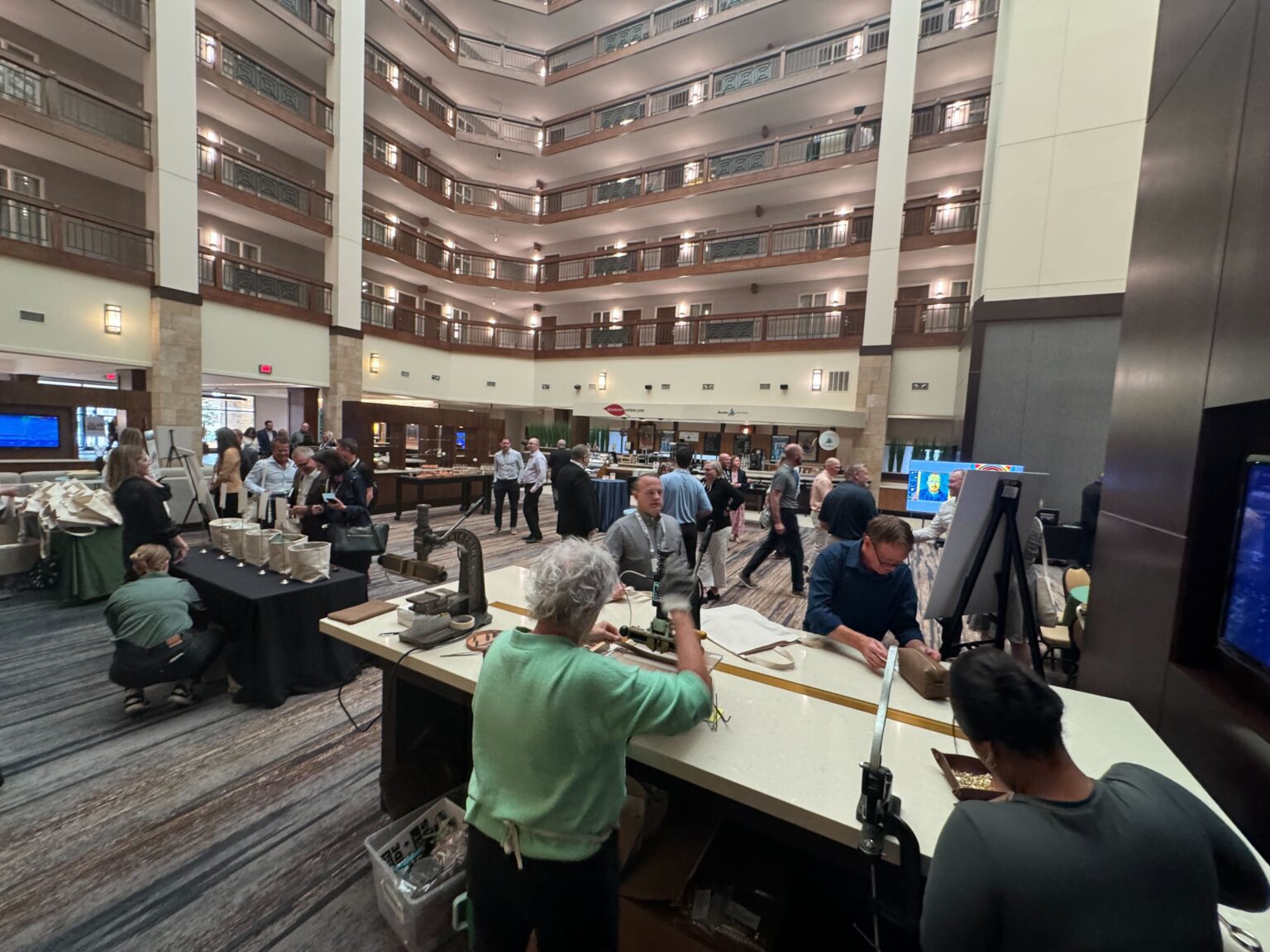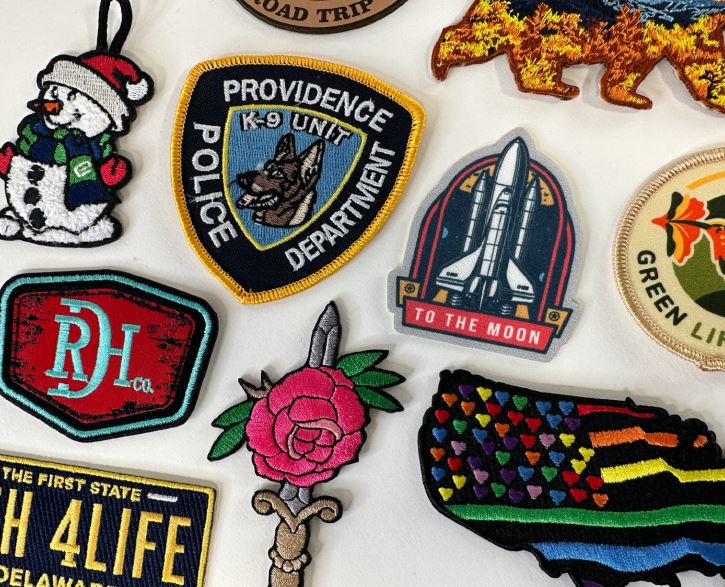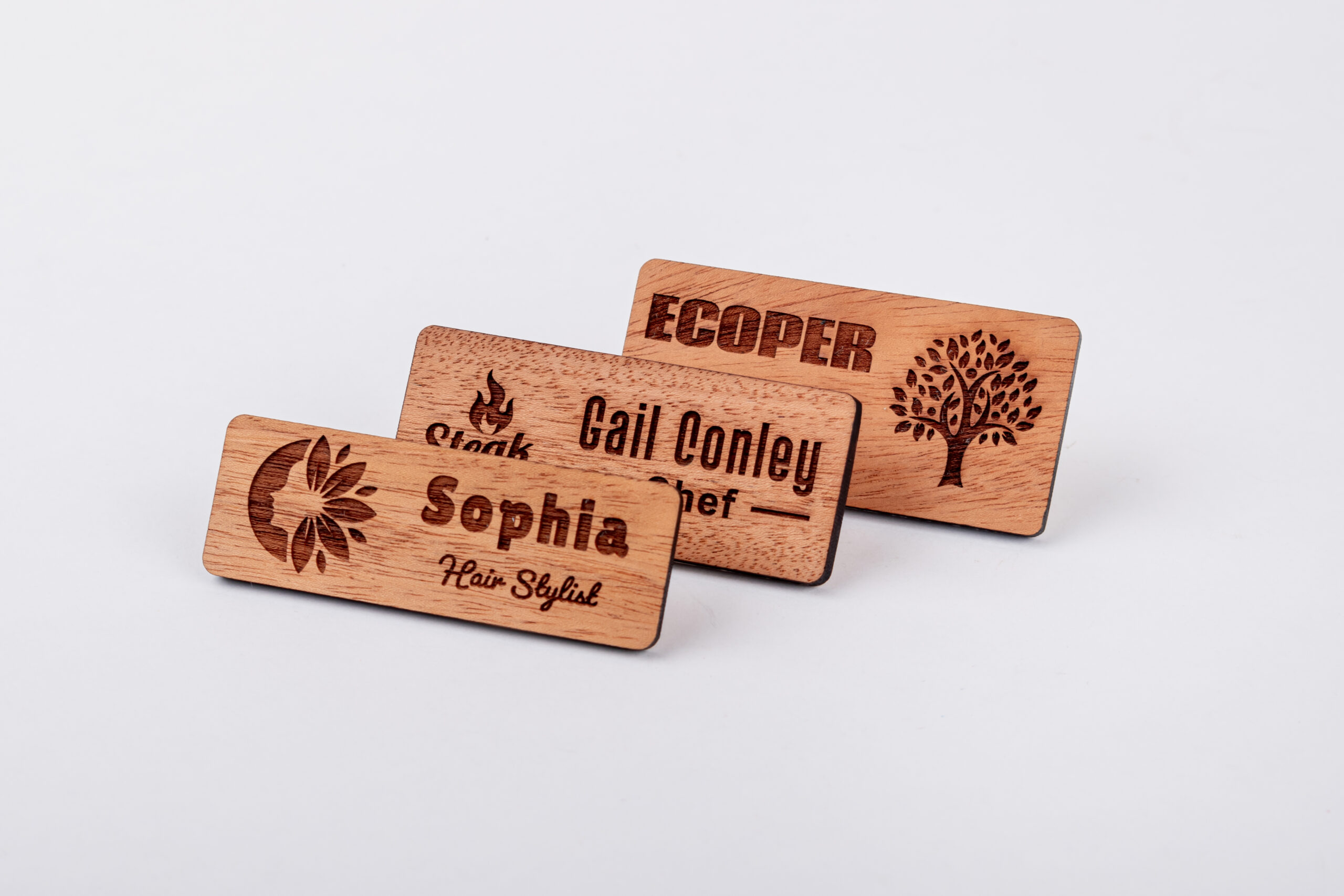An American-Israeli additive manufacturing company has added a new layer to direct-to-garment (DTG) printing. Stratasys recently launched its J850 TechStyle printer, a DTG solution that 3D prints designs onto denim and other textiles – offering what the company calls a more sustainable way to create bespoke and personalized designs for customers.
The printer enables the application of a full-color multi-material 3D print directly on fully assembled garments of various fabric types, including denim, cotton, polyester and linen.
“Many brands are limited in how much they can mass-produce denim clothing while maintaining a level of personalization that has meaning to the wearer,” said Zehavit Resin, senior vice president for commercial solutions at Stratasys. “We’re giving brands the opportunity to do something remarkable, to bring more character to their clothing line, while pushing a more sustainable business practice that appeals to multiple audiences across the consumer spectrum.”
Stratasys offers tray kits in two sizes that allow users to calibrate their 3D printer to meet a range of garment sizes and print full-color designs directly onto existing articles of clothing – encouraging the fashion industry to save material by upcycling old garments with unique designs.

Stratasys points to a recent study by the Additive Manufacturer Green Trade Association (AMGTA) that notes the J850 TechStyle enables a 24.8% reduction in carbon emissions and a 48% reduction in stock material when producing a 3D logo for luxury footwear. Additive manufacturing also requires 64% less electricity than conventional injection molding and thermal bonding, according to the report.
Stratasys partnered with several fashion designers to demonstrate the potential of its technology, debuting the Urban Tattoo collection to transform “ordinary garments into extraordinary pieces of wearable art,” according to the company.
“With Urban Tattoos, we’re not just decorating a garment; we’re giving it more life and spirit,” said Naomi Kaempfer, creative director for Stratasys.

Corium (asi/46669) now offers on-site monogramming of premium leather goods and accessories, a service it said is ideal for corporate events, trade shows and exclusive gatherings.
Corium’s team will travel to any location in the U.S., bringing all the equipment they need to provide a personalized experience. For the past few years, live decoration has been a pivotal part of experiential marketing, enhancing brand visibility and consumer engagement, and Corium’s new service follows that tradition.
“Our live stamping events are designed to offer a tactile and memorable experience, enhancing the intrinsic value of premium products through personalization,” said Allen Clawson, director of sales for Corium.
Corium, which offers made-in-the-USA leather goods and accessories, has been in the luxury promotional market for more than five years. Visit Corium’s website for more information on live stamping events.

Philadelphia-based Ninja Transfers (asi/73060) has added Ninja Patches to its arsenal of heat-applied decoration options. The supplier offers a variety of styles, including embroidered, full-color printed, leather, silicone, PVC, woven and chenille. To help decide which patch best meets your needs, Ninja provides a comparison chart, as well as application tutorials on its website to ensure long-lasting results.
Ninja Patches offers bulk quantity discounts starting at 50 pieces and doesn’t charge for art or setup fees. The introduction of patches to its product line “is another step toward becoming a one-stop shop for all decorating and custom apparel needs,” according to Ninja Transfers.
Mimaki USA, a maker of wide-format inkjet printers and cutters, recently released TRAPIS, which it describes as a next-generation digital transfer sublimation printing system that makes textile production more environmentally friendly by reducing up to 90% of wastewater, compared to conventional methods.
The system, which doesn’t require wastewater treatment facilities, can be located in an office or extended studio location, Mimaki noted. TRAPIS, which is derived from the words “TRAnsfer,” “Pigment” and “System,” is Mimaki’s pigment-transfer textile printing system; it includes a Mimaki inkjet printer, Mimaki original inks, dedicated transfer paper from Mimaki and a dedicated transfer unit from Klieverik or Monti Antonio.
TRAPIS can print on a wide range of textiles with one type of ink, enabling a dyeing business to operate in any location, on a variety of textiles, and producing short runs as required.

Name Badges International, part of Top 40 supplier World Emblem (asi/98264), has launched engraved wooden name badges, noting that the products have a higher perceived value with the added benefit of being recyclable.
Made of real mahogany and available in three sizes, these name plates feature a contrasting dark brown “burned” edge and have a unique texture and grain for a distinctive character. Logos and text are engraved with the same burned effect. The lightweight badges come with a pin or magnetic fitting to attach to garments. There are no minimums, setup or design fees, and typical turnaround is four days, according to the supplier.



